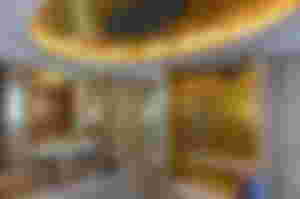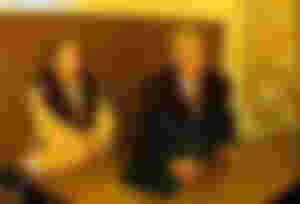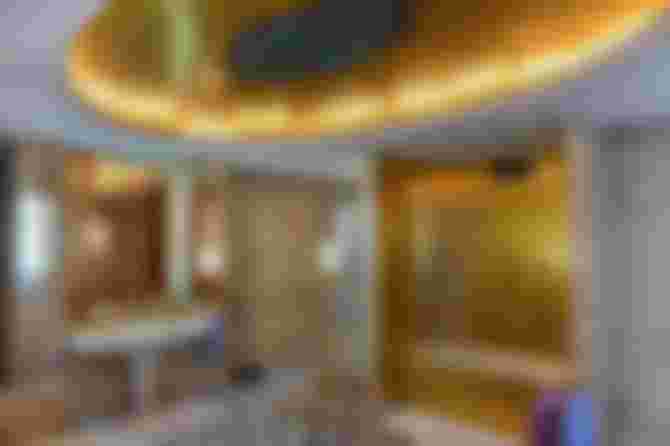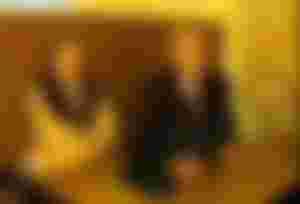Nicolae Ceausescu, born in 1918 in Skornicesti, a village in the Wallachian lowlands above the Danube, arrived in Bucharest with a belly full of bread immediately after completing his four-year schooling. And he started a shoemaking trade. He changed countless shoe shops, as his bosses kicked him out after only a few weeks of "work". So Nikolae never even finished the shoemaking trade.
His wife Elena Petrescu barely finished four grades and then worked as an assistant seamstress. To the dismay of the entire Romanian scientific elite, Elena received her doctorate in the early 1980s, although she did not even have an entire primary school, let alone a high school and college. Her extensive scientific work, written by a team of the most eminent Romanian experts, was entitled "Polymer Chemistry". Of course, she successfully defended him and soon became Minister of Science. She even fought with all her might and set-up for years to sit at the head of the Romanian Academy of Sciences and Arts. That remained perhaps her only unfulfilled wish.
The dictator and his wife declared their rule a "golden age." Their dictatorship was in itself a whirlwind of madness, obsession and a sick need to be an authority on Romanians. From 1965 to December 1989, Romania was a poor and isolated country. It was terrible, they harassed the people so much that it can only be described in one word - horror!

Since the beginning of the seventies, Ceausescu has sealed his country according to the North Korean model, all key party and state functions have been assigned to family members or loyal comrades from the closest circle. Wife Elena was the deputy head of government, son Niku was already prepared as heir to the throne.
Ordinary citizens during that time were deprived of everything that was a normal occurrence outside Romania. They had the right to consume 35 KW of electricity per month. At the beginning, the electricity went out for an hour, and that was obligatory in the evening, only to soon be extended to a few hours a day. The use of two light bulbs with a maximum power of 40 W was legally allowed in the apartments, and the population was forced to forget about ordinary refrigerators, washing machines, elevators and all other electrical appliances in order to fit into the allowed quota. As early as 1981 and 1982, the temperature in buildings with central heating was legally limited to a maximum of 10 degrees. The heating only worked while there was daylight, so in winter it was turned off around five in the afternoon. In the beginning, the central hot water reached the apartments less and less often, about 2 hours a day, and never on the higher floors.
With food, perhaps, it was even worse. From 1981 to 1989, there was almost no oil, meat and meat products, eggs, milk and dairy products, imported fruit, coffee, chocolate, rice, flour, and even rarely bread in Romanian shops. The bread that was baked in state bakeries had to stay on the shelves for 24 hours, and only then did it go, in miserable quantities, to those empty stores. This is what Elena ordered, because if the bread is hard, the people will eat less. The people ate vegetables, home-grown fruits and fish of domestic origin, if they managed to grab them at the markets. In order to slaughter their animal, the villagers had to get permission from the local authorities because all the animals were registered.
Among the regulations in force was one that no one was allowed to own a typewriter without a police permit. Television presenters were not allowed to wear jewelry in front of the camera, and books dealing with sexuality and reproduction were considered "state secrets" and marked as "medical textbooks."
All contraceptives were banned. Women were also prohibited from having abortions unless they already had four children. Regular gynecological examinations were a common practice in factories, offices, and even schools. Pregnant women were registered and regularly checked to see if they had had an abortion. In order to increase the birth rate, women who did not have children, even if they were infertile, were required to pay taxes of up to 10% of their monthly income.
In the early 1980s, Ceausescu wanted a large palace to further consolidate his status. He planned to build it in the middle of the historic part of Bucharest, which required the demolition of 19 churches, six synagogues and 30,000 houses. It was built by a team of 700 architects and cost about $ 10 billion. It had as many as 1,100 rooms and was the second largest building after the US Pentagon. It was especially important to him that the street leading to the palace be exactly one meter wider than the famous Champs-Elysees in Paris.

One of his favorite hobbies was bear hunting, which he most often went to in the Carpathians. He was obsessed with the size of his catch. The hunt itself would take a very short time. The bears would be lured with food, Colonel Securitatea would load his rifle, open a window on the check, and show him which bear to shoot at. There was no chance of him missing such a big target at a distance of 20 to 30 meters.
Every step of the Ceausescu couple was followed with great pomp, grandiose manifestations, receptions, rallies. Every school and every factory and company in the city was mobilized, the program was prepared. The Securitatea kept a close eye on everything, and no one knew which factory and which school to come to, so both children and workers and teachers stood like soldiers with the program prepared, freezing in the winter to those 10 allowed degrees in skirts and blouses, and then he would visit one school and one factory.
The black market was booming in Timisoara because the city is close to the border. To them, Yugoslavia was the West. From the smugglers, they ordered Vegeta, cassette players, jeans… Precisely because they were hunting for the signal of the then JRT, the revolution started in Timisoara because they saw how the rest of the world lived.
People were constantly disappearing, Securitatea was awake 24 hours a day. That is why they were constantly fleeing, so it is not known how many people were killed while illegally trying to cross the border. They fled in every way. There were corpses on Djerdap every day, every day, they were killed like dogs, only that was not talked about in the media. Unfortunately, Yugoslavia, on whose side they mostly tried to flee, was silent about it.
There was only state propaganda and one national television channel, which broadcast two hours a day, from eight to ten in the evening. The only opportunity for Romanians to see and hear what was really happening in their country and in the fraternal communist bloc were foreign television and radio stations.
But it all came to an end.

After the protests in Timisoara, which spread to Bucharest, at a rally on December 21, 1989, the "genius from the Carpathians", as the dictator called himself, tried to give a speech in front of a large number of people, using socialist rhetoric. But the people outvoted him. They asked him to step down. Ceausescu made the mistake of not leaving the country immediately that night. Instead he waited the next morning and tried again to quell the revolution. And by then it was already too late.
Realizing that events have spiraled out of his control, he enters a helicopter with his wife and flees from the roof of the committee building in Bucharest. The pilot lied to them that they would soon be within range of the air defense, so the couple panicked and ordered a landing. They stopped the car of a local doctor on the road and asked him to take them. He did so, but soon faked an engine failure and stopped. They then stopped the car of a local bicycle repairman. He drove them to a nearby agricultural institute and promised to hide them. But they locked them there and soon the police came and arrested them. The president of the hastily formed transitional state leadership of the "National Salvation Front", Ion Iliescu, signed a decree for the trial of the "hated dictatorial couple".

The trial began on the morning of December 25. The three judges made numerous accusations, apparently hastily piled on paper, but more than appalling. They were tried, apparently, in a classroom, and they were sitting in an ordinary school desk. They kept getting up, waving their arms, shouting, not believing what was happening to them. Reiterating that judges "do not know who they are and what they have done for the good of the country."
After a few hours of trial, Ceausescu's "golden age" ended in front of a firing squad in the barracks yard. To this day, as is customary in such situations, none of the soldiers found out which of them had live ammunition and which had "blanks".




I live near Romania and older people say that during his rule in Romania life was miserable. They bathed once a week, using broken bricks instead of allspice.Romania is the only EU member to join the debt-free union